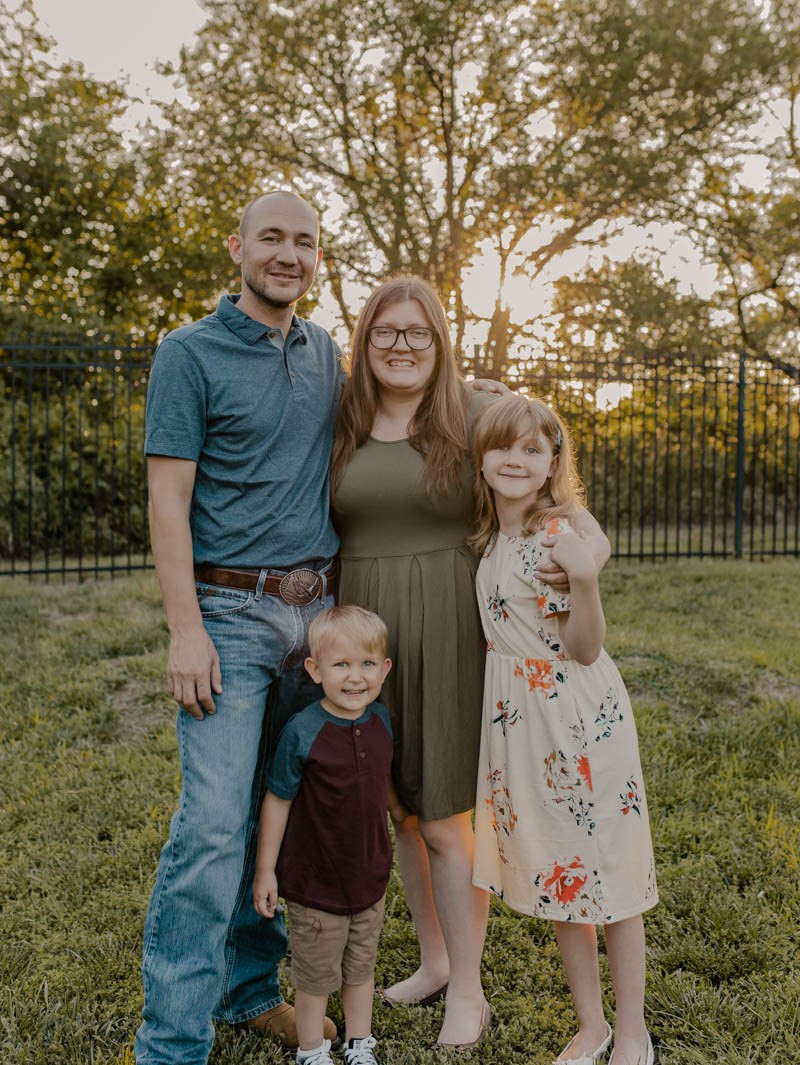Riding in her warm car on her way to gymnastics class, Caroline Avery could only imagine what it must be like to live on the streets during last year’s brutally cold February in Wichita. So, rather than spend her birthday money shopping, the 8-year-old said she wanted to use it to help people. Her first thought was to donate to the homeless, which would itself have been a thoughtful gesture for a child her age. But when her mother asked if she wanted to help adults or children, she immediately replied, “Kids!” Children, it seems, possess a natural empathy for other kids that demands expression.
“So, we started talking about how she could donate money to help kids,” said Jennifer. “We could help kids in foster care like her big brother or donate money to an agency that helps kids stay out of foster care. She remembered how much our foster son had loved his parents, so she decided to donate to a place that helps kids go back home to their parents.”
One of those agencies turned out to be Saint Francis Ministries, which earlier this year received a handwritten note from Caroline: “My name is Caroline Avery and I want to give $10 for my bday to help kids go home to their mom and dad.”
In the world of foster care, helping children return home is called reintegration, and it’s something Jennifer feels strongly about. It is, after all, the work to which she’s dedicated much of her professional life as a social worker. She comes by that dedication honestly.
“I was in foster care a couple of times,” she said. “My parents had an on again, off again relationship with lots of domestic violence and substance use between them. We were evicted from our home when I was seven. We ended up with our mother, homeless and living in different hotels. I remember one night, for whatever reason, my mother decided to steal her friend’s car at gunpoint, with my two sisters and me in the back seat. We were technically on the run for a few days until we awoke one morning, still in the car and surrounded by police with guns drawn. That was my first encounter with foster care.”
Her second experience occurred when she and her sister lived in Wichita. After spending about three years in Missouri foster care, their father got an aircraft job and regained custody. As Jennifer says, though, it didn’t go well. Their father was both physically and emotionally abusive. After a particularly angry outburst, she feared for their safety, and at just 16 years old opened a phone book and found the Wichita Children’s Home. Over the phone, they arranged Jennifer and her sister’s escape, and they were taken into police protective custody. She spent time in a foster home before entering an independent living program and aged out at 18.
Jennifer went to college at Wichita State University and became a social worker – “I didn’t know much about it, except that social workers had helped me a lot.” She worked for Saint Francis and other agencies before joining Kansas Children’s Service League. Then she packed up her family and followed her Navy husband to California for four years, fostering a teenaged boy while out west. They returned to Kansas a couple years ago, and now she’s back at KCSL, where she’s a healthy family supervisor, helping parents build the skills they need to heal their families and keep their kids home.
Despite her own history – or, perhaps, because of it – Jennifer sympathizes with parents whose children are placed in foster care.
“I’ve never met anybody who says, ‘I’m going to have this child just so I can abuse them.’ I’ve seen lots of families who didn’t have support or resources and who in just one moment made a terrible decision that resulted in their children being removed. But some of my favorite memories are seeing changes in parents, healing in families, and watching children safely return home. That’s why I love reintegration work. It’s a traumatic experience for a child to be removed from their home. And I know that even with my own parents, losing their children forever creates a pain that never goes away. Family separation hurts everyone.”
It’s a sentiment Caroline understands well. Thanks to her and to anyone who gives to Saint Francis, children and families receive the support, training, and therapy they need to rebuild, repair, and become whole again.
“I can’t speak enough about how important it is to support this work,” said Jennifer. “Donors matter so much. I’m in the business of trying to prevent kids from going into foster care, and there’s always going to be that need. That’s why the work Saint Francis does is so essential to helping reintegrate children in care. Every child deserves a chance to go home.”





